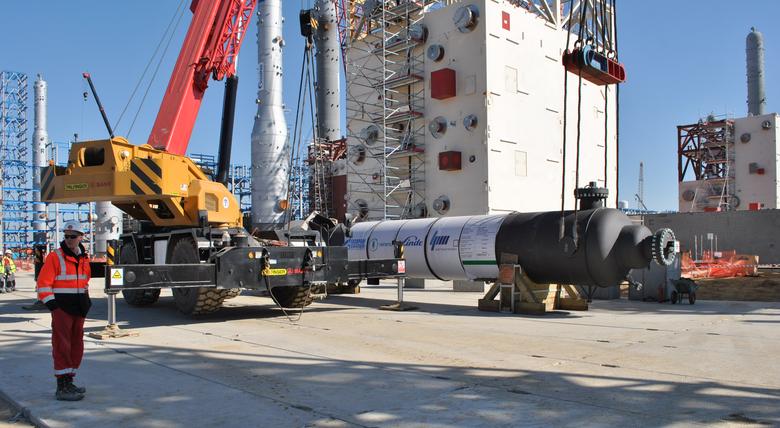
RUSSIA'S ENERGY SECURITY DOCTRINE

PLATTS - Russia's President Vladimir Putin approved a new energy security doctrine Monday, which includes strengthening cooperation with foreign partners, defending Russian energy companies' legal rights abroad and access to international markets, and further developing Russia's import replacement program.
The new doctrine replaces one approved in November 2012. It reflects changes in the Russian government's energy priorities in the wake of the introduction of Western sanctions against Russia since 2014, and successful cooperation on managing oil market volatility with OPEC since 2017.
The doctrine notes that Russia plays a key role in global energy security, but is operating with many restrictions.
"Russia's full participation in guaranteeing international energy security is hampered by restrictive measures introduced by several foreign states against Russia, including on the oil and gas sectors and the power system, as well as opposition from a number of foreign states and international organizations to energy projects that are under development with Russian participation," according to a copy of the document posted on the Kremlin's website.
Key external energy priorities include developing links through the Eurasian Economic Union, the CIS, BRICS (Brazil, Russia, India, China and South Africa), the Shanghai Cooperation Organization, the Gas Exporting Countries Forum, and OPEC.
Russia also plans to oppose discrimination against Russian energy companies on international energy markets, the document says.
Russia's domestic energy security priorities include replacing and maintaining its energy resource base, guaranteeing the production and delivery of quality energy supplies and related services, as well as regulating prices and investing in the sector. It aims to defend investors' rights and monitor foreign investment in the sector, carrying out antimonopoly regulation and defending against possible terrorist or other criminal attacks on energy infrastructure. It also aims to increase energy efficiency and limit the negative impacts of the energy sector on the environment.
"Russia supports international efforts to oppose climate change and is ready to work with all countries on this area," the document says.
Russia is prioritizing energy infrastructure development in regions including East Siberia, the Arctic, the Far East, the North Caucasus, Crimea and Kaliningrad.
The document identifies key global trends that are likely to impact energy security in the coming years, including the shift in economic growth to the Asia-Pacific region, slowing growth in global demand for energy, and changes to this demand structure, including the replacement of oil products with other fuel sources.
It further highlights growing competition among energy exporters, including as a result of new exporters entering the market, as well as changes to international regulations covering the energy sector.
Russia will also monitor the growth in LNG production and its role in international energy markets, and the formation of a global market for natural gas.
Russia sees risks from the decline in its traditional energy supply markets, and difficulties in entering new energy markets as well as the risk of conflict threatening production, transportation or consumption of Russian energy resources.
Domestic risks include Russian energy companies not responding quickly enough to new trends on international energy markets, including developing new technology and producing commercially viable hydrocarbons reserves. The document also recognizes the threat of discrimination against Russian energy companies abroad, and insufficient preparedness to respond to this as well as other political and military risks.
It also warns against poor long-term investment decisions in conditions of significant uncertainty on global energy markets and the potential impact of disruptive technologies, terrorist attacks, hacking of infrastructure and natural disasters. These could lead to loss of life, rising energy costs, declining financial sustainability in the energy sector, lower investment, a fall in payments to the state budget, and the need to divert state funds to mitigate the impact of these risks.
The Russian government will monitor energy security, manage risks, and present an annual report to the president on energy security and ways to strengthen it.
-----





